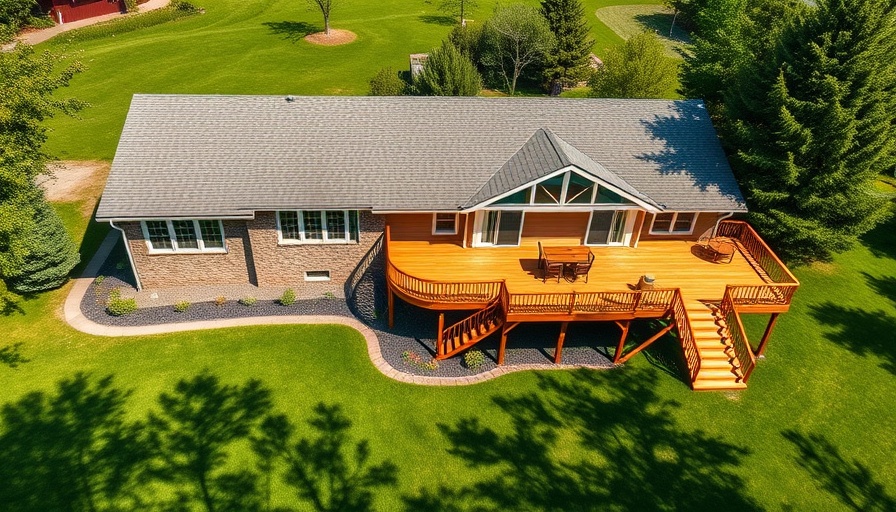
Understanding the Current Landscape of Basement Apartments in Brooklyn
The pursuit of legalizing basement apartments in Brooklyn is not just a matter of housing; it intersects deeply with the complexities of city regulations and safety concerns. In recent years, the idea of converting existing basements into legally recognized apartments has gained traction, primarily because of the pressing housing crisis in New York City. As advocates push for reforms, several crucial legal and zoning considerations come to light, making it essential for homeowners and prospective tenants to be well-informed.
Legal Specifications: What Makes a Basement Apartment Legal?
To determine whether a basement apartment is legal, home and property owners must navigate through NYC’s stringent zoning laws. Local regulations dictate that a basement must meet several requirements, including having adequate ceiling height, sufficient light and ventilation, and suitable exit routes. Generally, more than half of the apartment must be above curb level to qualify as a basement; otherwise, it is classified as a cellar, which is illegal for residential use in most scenarios.
Additionally, every room must possess a window for safety reasons, allowing natural light and ventilation, which are critical to ensuring habitability. Under NYC’s Multiple Dwelling Law, the property must also undergo inspections to ensure it meets all city standards. Failure to comply with these regulations can expose landlords to severe penalties and force tenants into precarious living conditions.
The Distinction Between Basements and Cellars: Why It Matters
Understanding the difference between basements and cellars is vital for Brooklyn homeowners. Under the zoning resolution, a basement is at least partially above ground, whereas a cellar is entirely below it. This distinction significantly impacts legal conversions and thus, the safety and well-being of residents. Advocacy groups like the Basement Apartments Safe for Everyone (BASE) highlight the urgent need for safety standards that apply to both possessions, as many residents face severe risks when living in cellars that do not meet legal safety requirements.
The absence of inclusion for cellars in recent proposals by city officials has sparked considerable debate. Critics argue that neglecting to include cellars in legalization efforts excludes many units from undergoing necessary safety upgrades, leaving a segment of the city's housing stock vulnerable and unregulated.
Current Legislative Moves: A Pathway Toward Legalization?
The legal landscape for converting basement apartments into livable spaces is continually evolving. Recent budget proposals from Governor Kathy Hochul have shown promise but still fall short of addressing the needs of cellar conversions. Advocates are urging the administration to broaden the scope of these legislative efforts to encompass cellars, thereby ensuring a larger proportion of the city’s subgrade housing stock can meet safety standards.
Moreover, a pilot program initiated in areas like East New York has seen limited success, demonstrating the complexities involved in navigating legal conversions, especially under budget constraints. Though the pilot's objectives align with increasing affordable housing options, many homeowners struggle with rising costs, casting doubt on the program's long-term viability.
Community Perspectives: Voices from the Ground
While regulations serve as a framework for safe living, the shared experiences of renters in basement apartments indicate a compelling narrative of necessity and risk. Many residents turn to basement rentals as an affordable housing solution, often unaware of the potential dangers associated with illegal units. In the aftermath of severe weather events, such as Hurricane Ida, which claimed lives in basement apartments, the urgency to rectify these situations through legalization becomes glaringly evident.
Perspectives gathered from advocates, residents, and city planners reveal a complex landscape where safety, legality, and affordability intersect. Many residents express fear that any regulatory oversight could inadvertently lead to displacement due to stringent requirements that property owners might struggle to meet.
Future Considerations: Balancing Safety and Affordability
The ongoing debate surrounding the future of basement apartments in Brooklyn prompts essential questions about public policy and urban planning in a city with a housing crisis. Engaging with community stakeholders can yield insights that bridge the gap between safety regulations and realistic housing solutions. It is vital to cultivate an urban environment that fosters both safety and accessibility while addressing the immediate needs of those who rely on basement apartments for affordable housing.
Increasing public awareness and education surrounding the legalities of basement conversions is critical. Homeowners should have access to clear resources that outline their responsibilities and rights, while potential renters must be informed of the inherent risks of living in unregulated spaces.
Moving Forward: What Homeowners and Tenants Need to Know
For Brooklyn homeowners considering basement conversions, understanding the legal requirements and engaging with local advocacy groups can serve as a vital first step. Not only do these organizations offer support, but they can also provide valuable resources tailored to navigating the legal landscape effectively. Furthermore, local government initiatives are increasingly focusing on improving conditions in basement apartments while updating legislation to reflect the realities faced by residents.
Tenants currently residing in basement apartments should actively engage in conversations surrounding safety and legality while advocating for their rights. Report any suspected illegal units to local authorities to prevent future tragedies and help promote housing equity throughout the borough.
Moving Toward a Safer Brooklyn: A Call to Action
As the demand for affordable housing continues to grow in Brooklyn, the path toward legally recognizing safe basement apartments must be paved with thoughtful legislation and community involvement. Advocates encourage homeowners to stay informed about the upcoming legislative changes while pushing for better safety standards to ensure the dignity and safety of residents living in these often-overlooked spaces.
 Add Row
Add Row  Add
Add 




 Add Row
Add Row  Add
Add 

Write A Comment